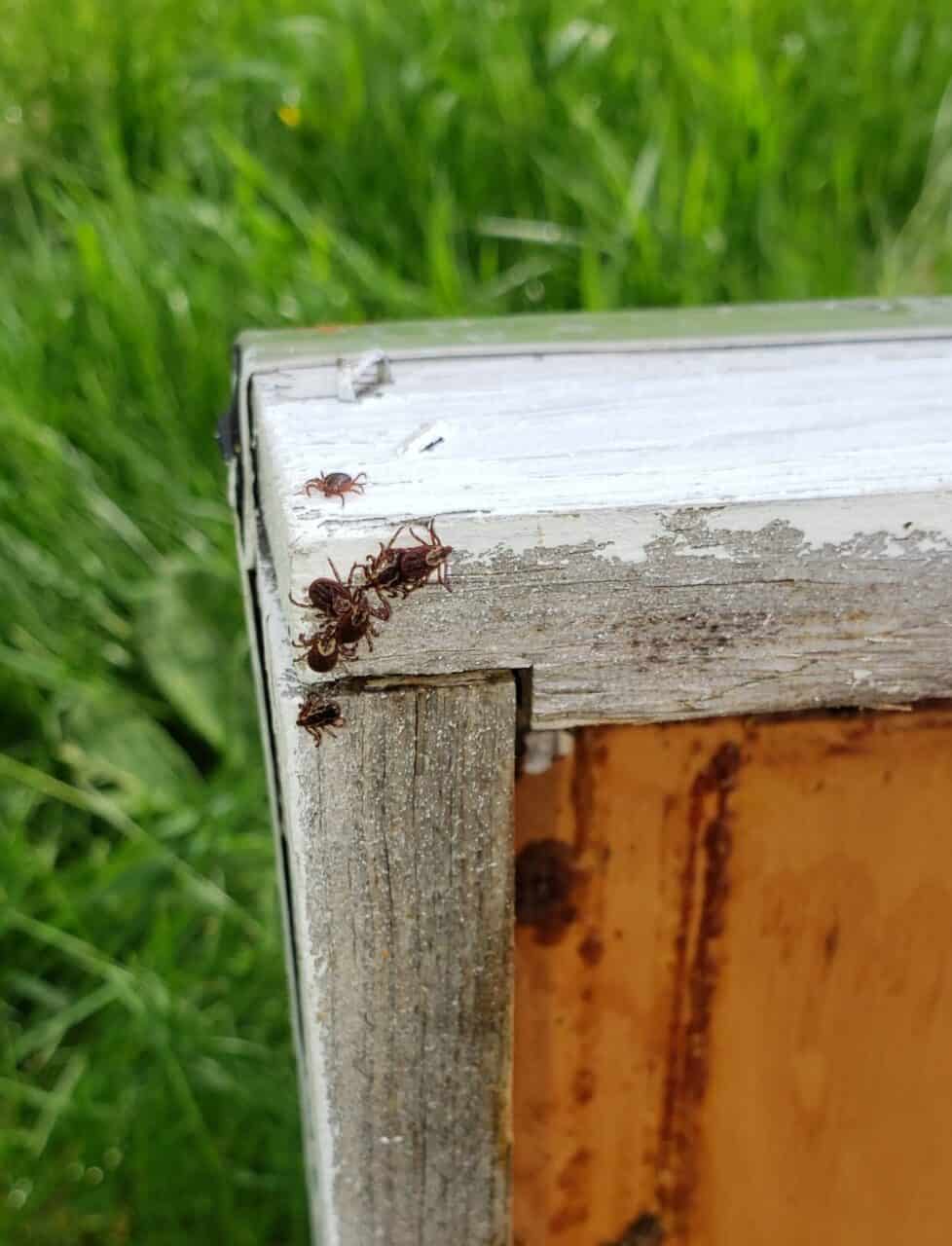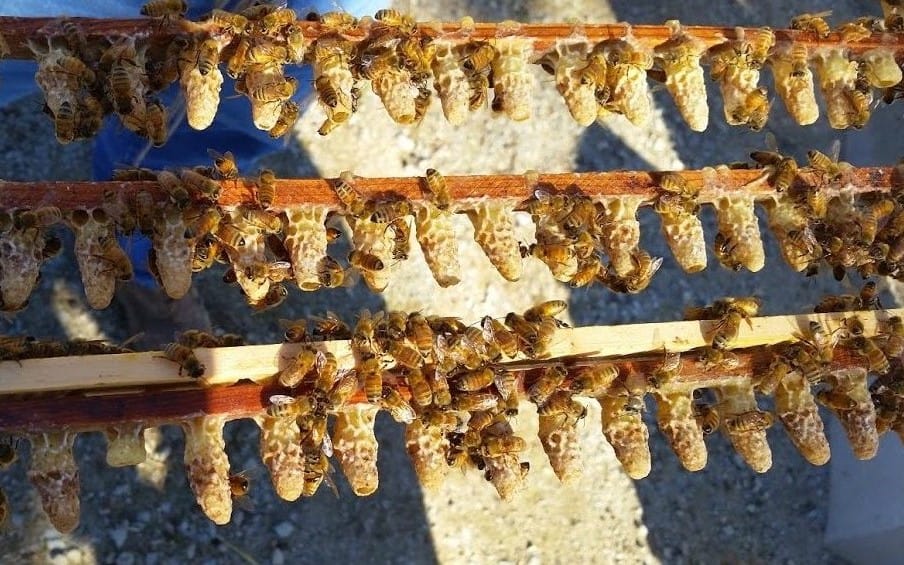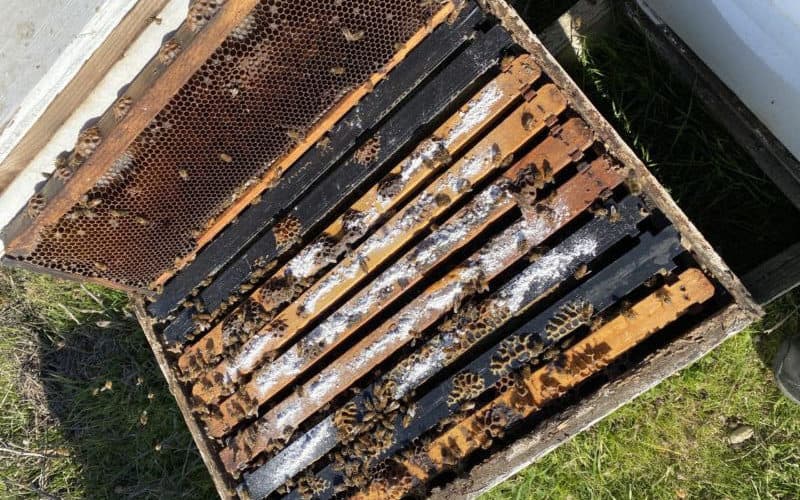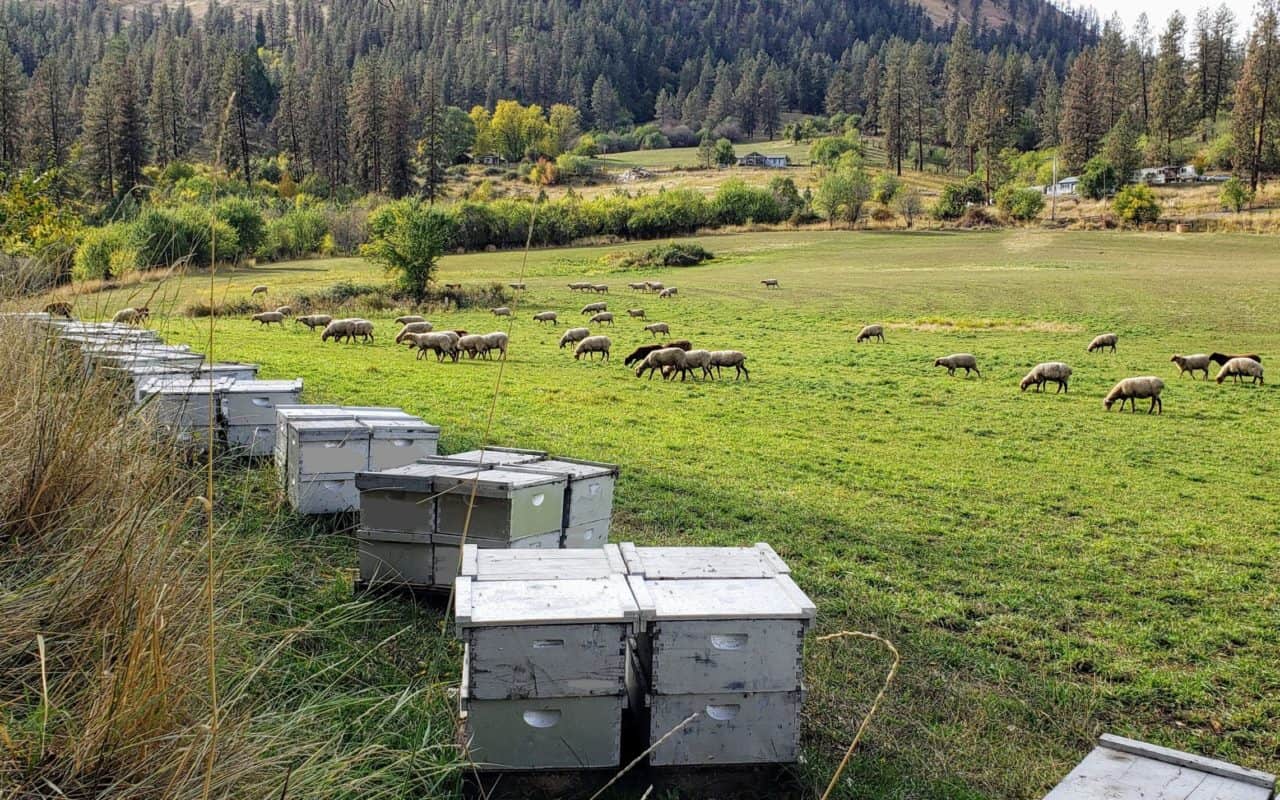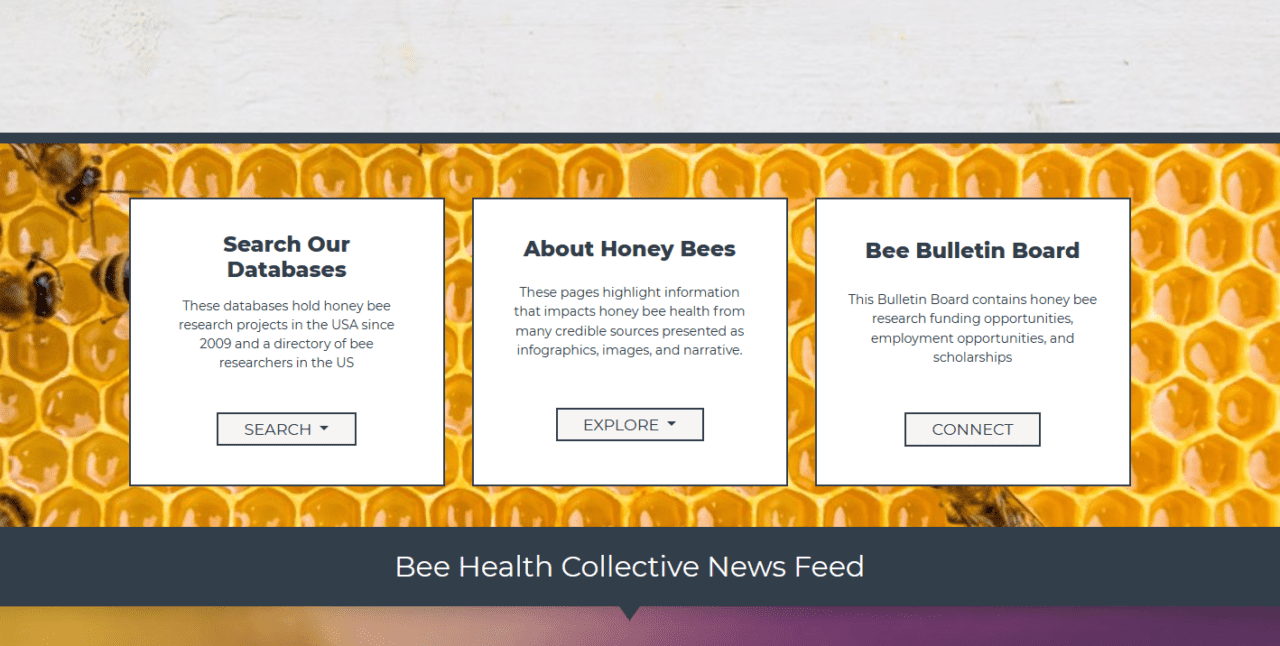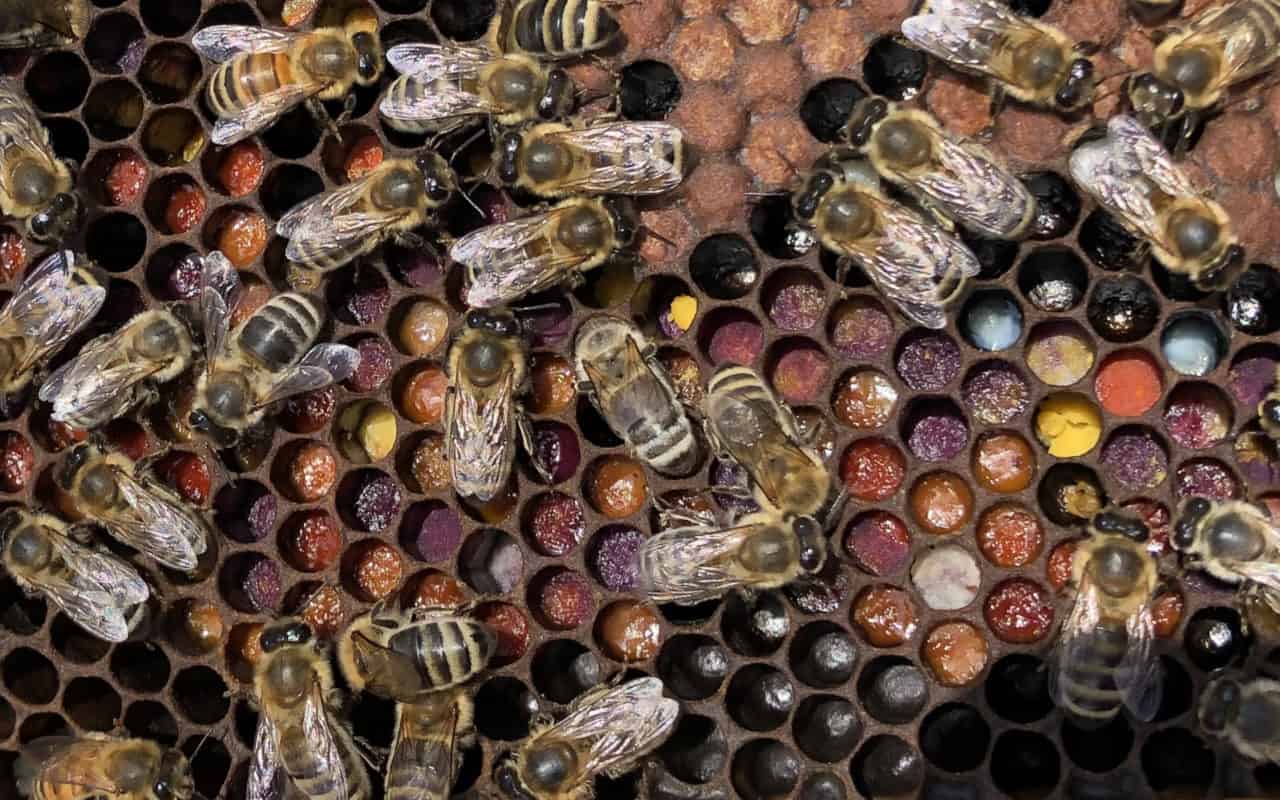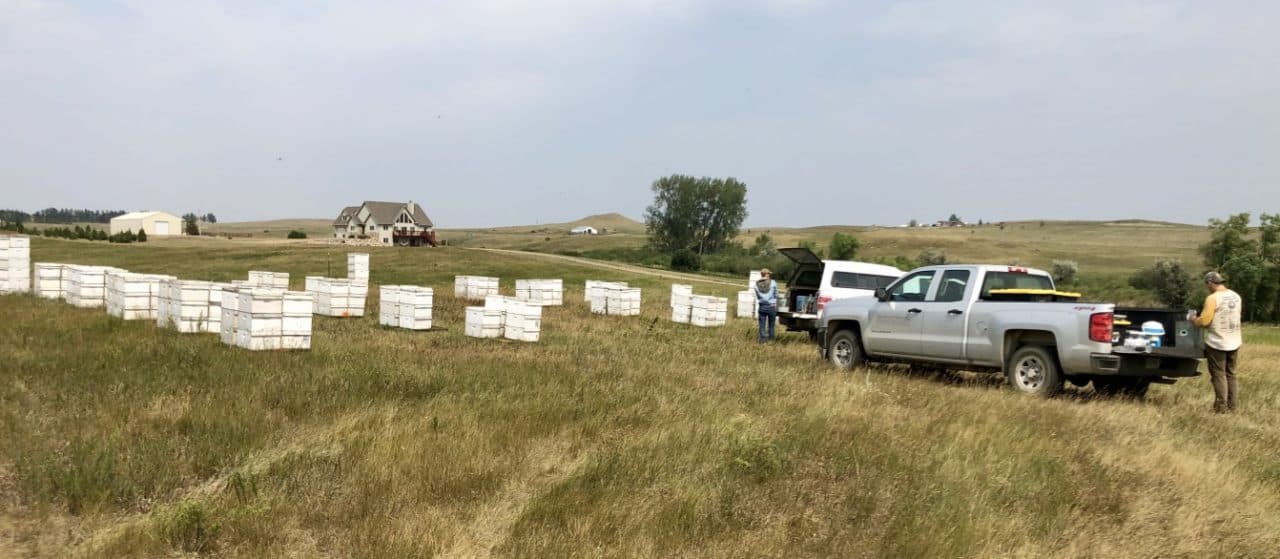What is the most hated parasite in beekeeping? Well, if you answered Varroa, you would surely not be alone. Varroa is the bane of the beekeeper’s existence all year round, and deserve the number one spot on the most-hated greatest hits list. But there is another parasite that comes in at a close second - ticks. And this year especially, they seem to be everywhere. Experts at the University of Minnesota hoped that last year’s drought and this year’s cold, wet, late spring would reduce this year's tick population. Unfortunately, this doesn't seem to be the case. BIP's Tech Team Field Specialists on the ground…
Author: Anne Marie Fauvel
The Great Bee Marathon
If you are an almond grower, a beekeeper or simply live in Northern California, you know where to find most of America’s honey bee colonies in late January through February. Close to two million honey bee colonies come from all over the United States to pollinate the almond blooms each year. But then what? If getting bees to California is like a sprint for beekeepers, what happens after is more like a marathon. When the last almond petals fall, the beekeepers’ most intensive work period begins. Lightning Speed Honey Bee Biology and their Life Cycle In nature, honey bees reproduce on two levels. At the…
Field Testing the Benefits of Probiotic Supplementation in Real World Commercial Beekeeping Operations
Photo credit: BIP California Tech Team Field Specialist Matt Hoepfinger.
In light of the rise in probiotic supplementation's popularity among beekeepers, the California State Beekeepers Association (CSBA) awarded Bee Informed Partnership (BIP) funding to test the colony health benefits of probiotic supplementation in commercial beekeeping operations. To do so, we tested two commercially available probiotic products: SuperDFM, manufactured by Strong Microbials, and Mann Lake's ProDFM. Field trials were conducted between fall 2019-spring 2020 and included colonies from commercial operations in Oregon and California. For each region, three bee yards were selected, and within each yard, four colonies were randomly assigned to one of three groups: SuperDFM; ProDFM; or No supplementation Negative Control, (2 regions x…
The Bee Informed Partnership Field Specialists’ Report on 2020 Commercial Beekeeping Trends
The Bee Informed Partnership's Tech Transfer Team offers a honey bee colony health monitoring program tailored to meet the specific needs facing commercial beekeepers. The Tech Transfer Team program's Field Specialists follow commercial beekeeping operations during their yearly migrations across the country, to provide pollination services and producing honey (Figure 1). Field Specialists perform colony health inspections, on-site testing for several important honey bee pests and diseases, including the destructive Varroa mite, collect samples if additional laboratory testing is required, and consult with the participating beekeepers regarding their colony health management plan. In 2020 alone, BIP's Tech Transfer Team collectively inspected over 13,000 colonies, put…
The Bee Health Collective, A Fantastic New Bee Health Tool
Image: https://beehealthcollective.org/
Are you a beekeeper looking to find or post a job? Are you a student looking for bee-related scholarships? Are you an educator or concerned citizen looking for accurate, up-to-date U.S. honey bee colony health statistics? If you answered yes to any or all of the above, then you should visit the Bee Health Collective’s website https://beehealthcollective.org and have a look around! The Bee Health Collective has designed a “one-stop shop” for all of your U.S. honey bee information needs, presented in a well-organized, easily navigated set of menus. In About Honey Bees you can find recent, accurate, peer-reviewed information on a range of honey…
Idaho Honey Bees, Foraging Beyond Potatoes
What is the first thing that comes to mind when you think of Idaho? Did you think of potatoes? I would have, until I accompanied Ben Sallmann, BIP Pacific Northwest Tech Transfer Team Field Specialist, on a sampling trip to Idaho and Montana. I was struck by what this state has to offer honey bees and their beekeepers. It is no wonder they call it the ‘gem state’. According to the Idaho State Department of Agriculture, 20% of the state’s gross product comes from the agricultural sector, the single largest contributor to its economy. This production, of course, includes that of their famous potatoes, which…
The BIP Tech Team Program – We GO where the bees GO!
by Anne Marie Fauvel & Nathalie Steinhauer The Technical Transfer Team Program offers regular on-site hive inspections and sampling services for large commercial beekeepers and queen breeders throughout the U.S. The team consists of 5 distinct regions, staffed by 6 Honey Bee Health Field Specialists, providing services to over 100 commercial beekeepers, in 17 states, 10 of which are the nation’s top honey producing states. As our honey bees and beekeepers migrate to pollinate our food crops and ensure food security, so do our Field Specialists. They collectively drove over 100,000 miles inspecting close to 20,000 colonies last year alone! Can you imagine the logistical…
